When life hands you lemons, you could make lemonade or use them to freshen up your entire home.
It might sound like we’re exaggerating, but it’s true. You can find countless ways to implement them in your cleaning routine.
Today, we’re offering ten lemony ideas to safely and effectively make your living space more lovable.
Let’s dive in!
How To Use the Versatile Lemon Around Your Home
The humble lemon is known for its bright, tangy flavor. From salad dressings to desserts to refreshing beverages, this citrus fruit can do it all. But its powers go beyond enhancing food and drinks.
You can use lemons to clean and deodorize nearly every room in your home. Citric acid naturally brings everything from clothing to bathroom fixtures back to life. Don’t underestimate this workhorse before you put it to the test. You might be surprised when you see it in action.

Besides their incredible versatility, they also get points for being safe and inexpensive. Unlike chemical cleaners, you won’t have to worry about the side effects of coming in contact with this substance. You should be fine as long as you keep the juice away from your eyes and any open cuts.
If you need ideas for how to use lemons around your home, look no further. Here are ten of the top ways to zest up your cleaning routine.
Speaking of Lemons: How to Avoid an RV Lemon (And Your Legal Rights).
#1 Brighten Whites With Lemon Juice
Many of us love the look of crisp, white clothing. But over time, they’re bound to get a little dingey. The same goes for bed sheets, towels, and tablecloths. Dirt, sweat, and skin cells can discolor the brightest whites. And despite what commercials say, using detergents can sometimes worsen the problem.
Fortunately, there’s a simple solution. Place lemon slices into a large pot of water and bring it to a boil. Once it’s rolling, turn off the heat and add your whites. Soak for at least a few hours or leave them overnight if they’re especially grimy.
Once done soaking, throw them in the washer as usual. While this method can’t substitute for proper washing, it’ll give your clothes a head start on stain removal.
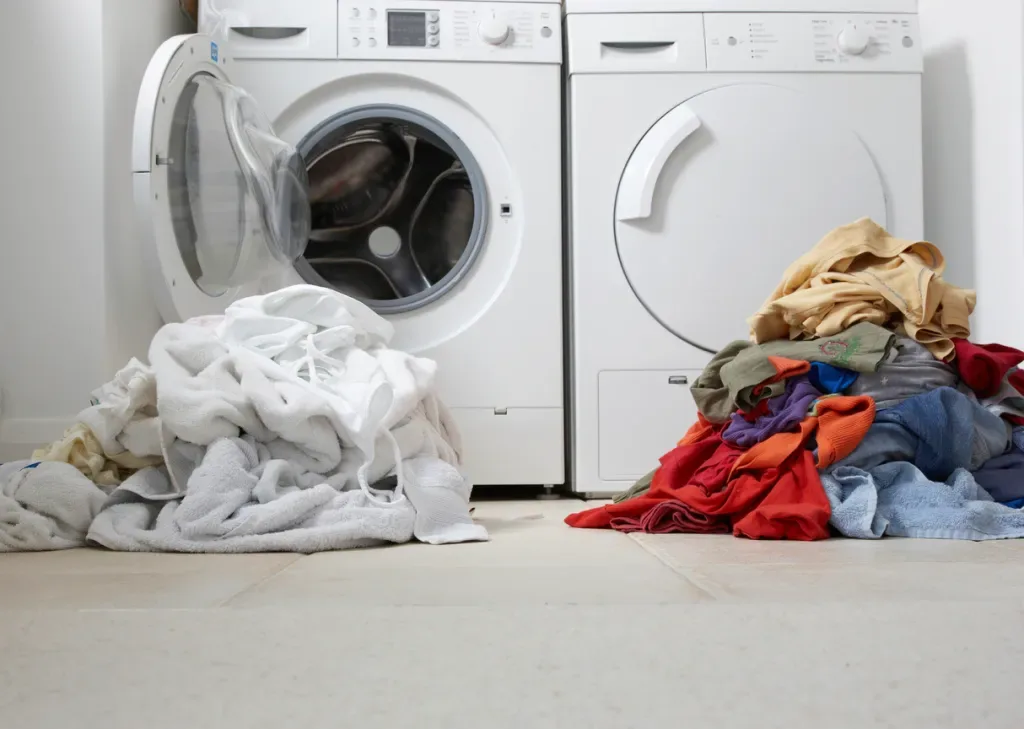
Another technique is to make a paste with lemon juice and salt. Cover any stains with the mixture and let it sit for about 30 minutes. Then, rinse the spot with white vinegar and warm water.
Of course, some materials are sensitive to things like citric acid, so you’ll want to spot-test an inconspicuous area before treating any noticeable stains.
We’ve got more of The Secrets to Cleaning Whites Without Bleach.
#2 Use Lemons to Freshen Up Your Home
No matter how hard you work to keep your place spotless, unpleasant odors can sneak in. Even the objects we use to clean our homes develop yucky smells. Fortunately, you can banish them with the help of our favorite yellow citrus fruit.
We have an easy solution if you get a nose full of foul air while washing dishes. Drop half of a lemon into your garbage disposal along with a couple of tablespoons of baking soda. Run cold water and hit the switch until it’s empty. That should help flush out any gunk.
When your refrigerator starts smelling funky, place one or two lemon wedges inside to absorb the stench. A juice-soaked cotton ball will also do the trick. Just be sure to find whatever old food is the source of the odor. Otherwise, it’ll only get worse.

Sometimes, vacuum cleaners can leave your house smelling musty. When this happens, put a few drops of lemon juice onto the bag before you start it up.
Finally, you can give your whole home a lemony-fresh scent by putting citrus slices and cloves into a pan with water. Set it to simmer and enjoy. As a bonus, it’ll help shine up your aluminum cookware!
#3 Clean Your Microwave With Lemons
Microwaves are notoriously annoying to clean. Splattered food gets caked on during the cooking process, leaving the inside icky. Before you know it, simply opening the door will cause you to lose your appetite.
You don’t have to live with a disgusting appliance, though. Combine a cup of water with four tablespoons of lemon juice in a microwave-safe bowl. After a few minutes on high, that stuck-on food should easily wipe off. It couldn’t be more simple.
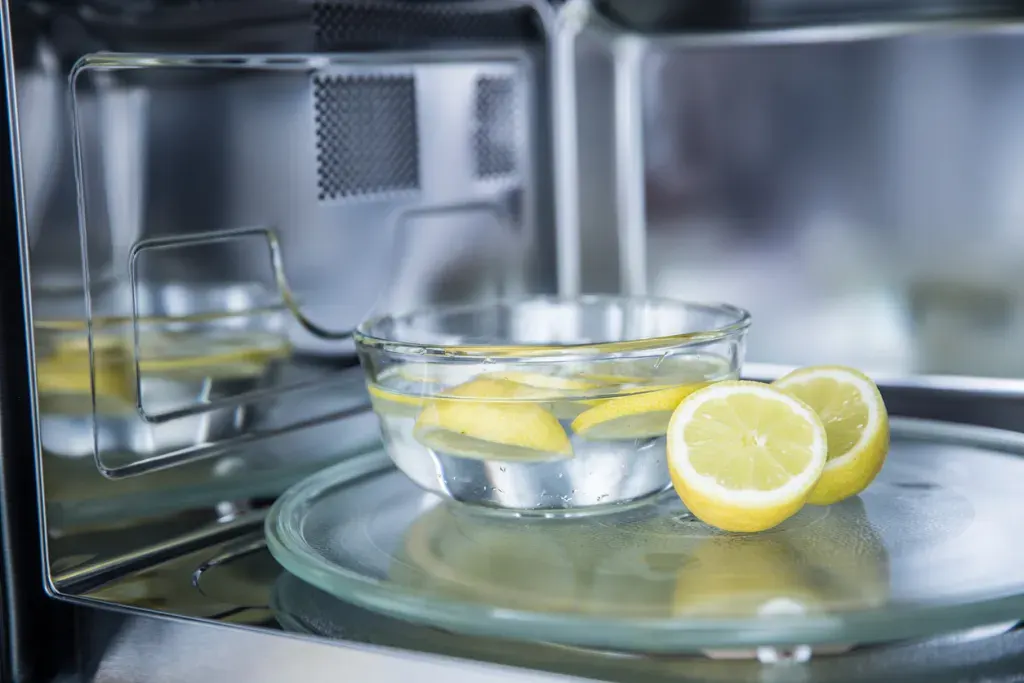
While chemical cleaners can help you tidy your microwave, many people misuse them. Some instructions say to wipe down surfaces with water after use so that harmful fumes don’t wind up in your food. However, when you use lemon to clean home appliances, you’ll know you and your family are safe.
#4 Polish Metal Using Lemons
Over time, metal cookware tends to tarnish. Unsightly smudges and discoloration might make you wonder if it’s time to trade them in for a new set. But before you head out to the home goods store, use a lemon to polish them up.
Slice the fruit in half and dip it into a shallow dish with coarse salt. Gently rub the entire surface, rinse with hot water, and use a soft cloth to dry and polish.
This trick works great on copper, aluminum, chrome, brass, and pewter. However, items plated with gold and silver will need a more specialized solution.
You can use this for more than just pots and pans. Most shiny metal items can benefit from a once-over with salt and lemon. Try it on your vehicle’s chrome accents, home decor, and anything else that used to sparkle but now looks lackluster. As always, remember to test it out in an inconspicuous spot first.
#5 Remove Odors From Wood With Lemons
Wooden cutting boards are a staple in most kitchens. However, they can absorb funky odors and food stains. Since manufacturers typically advise against running them through the dishwasher, you’ll need to get creative with your cleaning method.
Once again, it’s lemons to the rescue! To remove any lingering smells, slice a lemon in half and thoroughly rub down the entire board, front and back. Don’t be shy. Get it nice and juicy. Allow it to sit for at least 30 minutes or up to 12 hours, then rinse with water.
If stubborn stains are on your chopping block, sprinkle it with baking soda before applying the lemon. In either case, you’ll want to allow the surface to dry thoroughly after rinsing, then seal it with a food-grade oil.
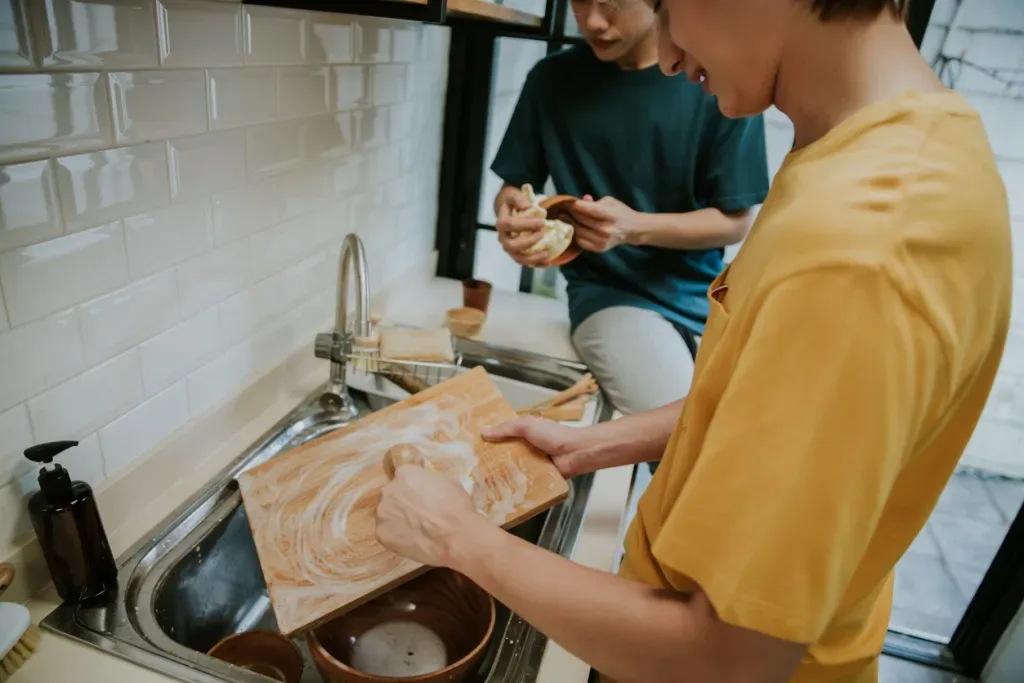
Most raw wood can handle this treatment. You can use it to bring other items back to life, such as bowls and rolling pins.
#6 Make Your Own Lemon Furniture Polish
Chemical-based furniture polish will sometimes leave behind residue and an unpleasant smell. But you can skip the store-bought stuff and return to the basics with just a couple of household items.
To polish wooden furniture, combine one part lemon juice with two parts oil. While some sources say to use olive oil, sweet almond oil absorbs better and leaves less residue. Whatever you choose, wipe down the piece, let it sit for a few minutes, then go back over it with a clean cloth. It’ll leave behind a lustrous shine and the scent of summer.
You can use this same recipe to make scratches less noticeable in wooden furniture.
If you have marble countertops, wipe them down with either plain lemon or a mixture of juice and salt. Go over the surface with a damp cloth and allow it to dry. Piano keys and other ivory pieces can also benefit from this solution.
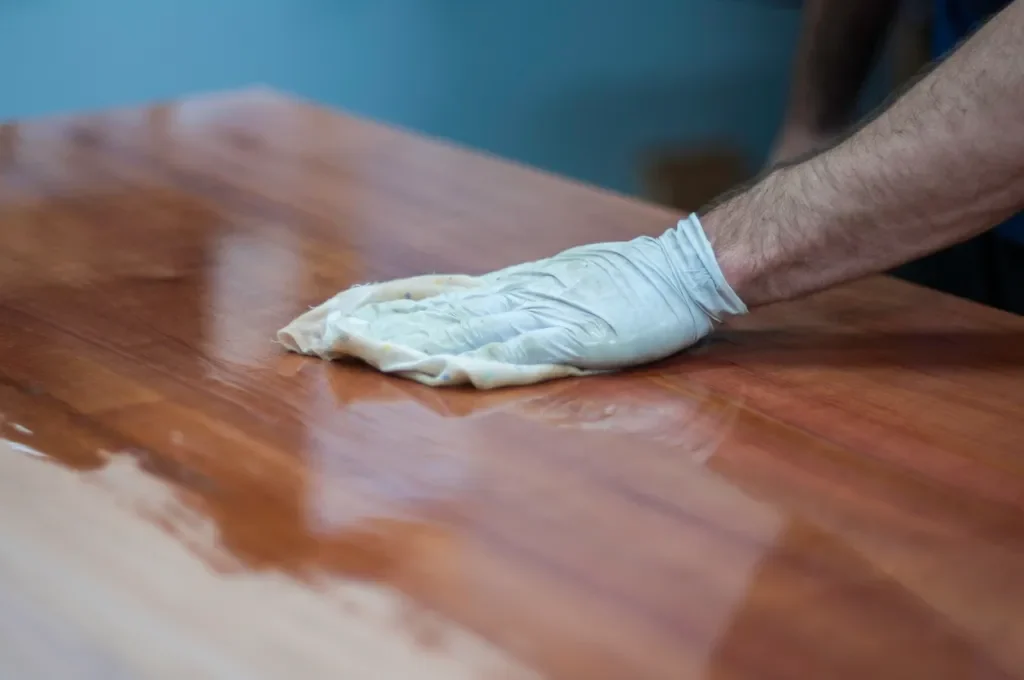
#7 Remove Limescale From Faucets and Fixtures Using Lemons
Depending on the type of water coming out of your tap, your fixtures may be prone to limescale and other yucky buildup. When you don’t get ahead of mineral deposits, they can accumulate on faucets and showerheads, ultimately affecting your water pressure.
Several methods exist to combat this force of nature. Dip a sponge in straight lemon juice or a diluted solution, then run all over fixtures and taps. You could also cut the fruit in half and rub it directly on the surface. Rinse with water and dry with a soft cloth.
Interestingly, slices of lemon peel work, too. Because most of the oils are in the fruit’s skin, it’ll do a good job eliminating hard water spots.
Again, you won’t want to use lemon on gold or silver-plated fixtures in your home, which could cause irreversible damage.
#8 Scrub Sinks and Tubs With a Lemon Paste
Since we use sinks and tubs to clean lots of objects and ourselves, they often accumulate nasty bacteria. Soap scum and mildew build up over time. And no one wants to bathe or shower in a disgusting environment.
Combine half a cup of baking soda with a small drizzle of dish soap. Only add enough soap to make a thick paste. Apply this mixture to the cut side of a lemon and use it to rub down your home’s sinks, showers, and bathtubs. Make sure to hit the drains as well. Then rinse off and enjoy the bright, sparkly surface.
Use this trick in your kitchen, bathroom, and laundry room basins to make your next clean-up a breeze.
To tackle filmy residue on shower doors, make a solution of equal parts lemon juice and white vinegar. Spray them down, give a good scrub, and wash away the filth to reveal shimmery glass that looks brand new.
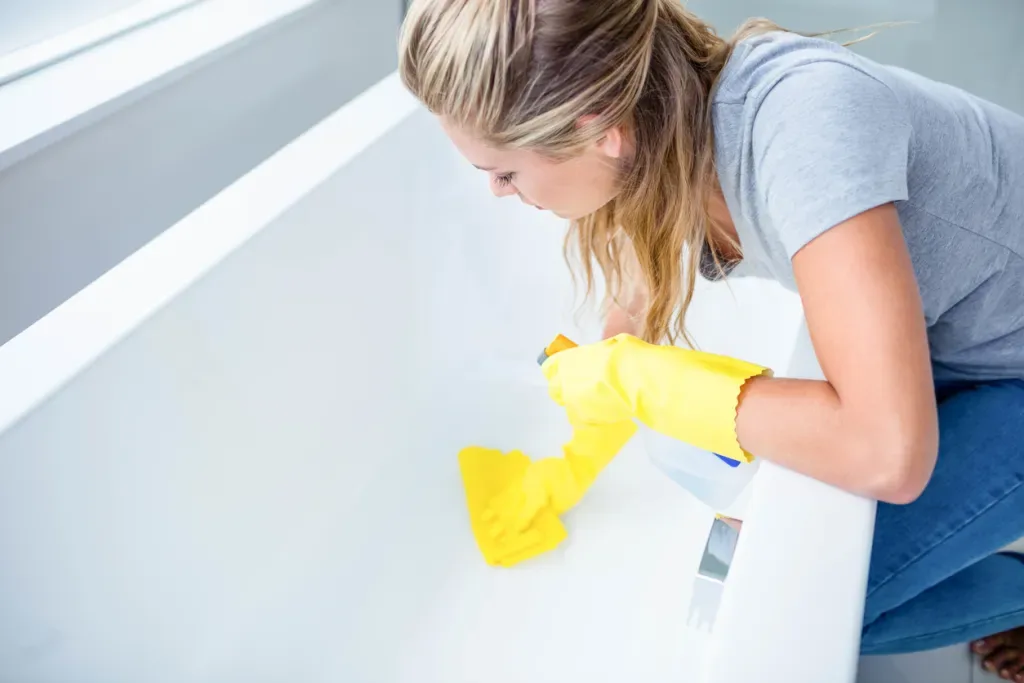
#9 Use Lemons To Prevent Food Oxidation
No one likes a brown avocado or a sad, discolored apple slice. But unfortunately, oxidation is a part of life. Once air hits a cut piece of fruit, the clock starts ticking toward an inedible leftover. However, you can stop this process in its tracks.
If you’re chopping up an apple, throw the chunks into a bowl and squeeze lemon juice over them. Toss them well until each piece has a good coating. They should retain their natural color until you’re ready to devour them.
Are you only eating half an avocado? Drizzle lemon juice over the remaining portion and wrap tightly with plastic wrap. It’ll stay green by preventing oxygen from coming into contact with the inside of the fruit.
You can also use this tip to keep a bowl of guacamole looking delicious. Simply smooth out the surface and top it with a healthy squeeze of juice. When you arrive at the potluck, it’ll still have that bright, verdant color instead of looking like brown sludge.
#10 Remove Rust With Lemons
Our final tip uses lemons to remove a scourge found in and around nearly every home.
We’ve all been there. You grab your gardening shears from the shed to find a thin layer of crusty red rust. They might still technically work but are far from the sharp blades you initially purchased. Plus, dull tools can be dangerous, and cutting yourself with a rusty object can cause tetanus. It’s simply not worth the risk.
However, lemon juice can remove light rust damage on many metal objects. Mix equal parts juice and coarse salt and rub all over with a cork. If you don’t have an old cork lying around, use a thick cloth to protect yourself from sharp edges.
You may need to repeat the process several times to remove all the rust. However, this won’t revive something that’s heavily damaged and requires sanding. But it will help bring lightly weathered snips, shears, and knives back to life.
Dive Deeper: 201 Everyday Uses for Salt, Lemons, Vinegar, and Baking Soda.
How Will You Use Lemons Around Your Home?
We’ve given you plenty of reasons to pick up a bag of lemons on your next grocery run. You might even want to buy a citrus tree to keep yourself in high supply.
From reviving an old cutting board to getting stubborn stains out of your favorite shirt, lemons are helpful in many ways around your home. So the next time you have part of one left over from a recipe, you’ll know what to do with it!
We’ll Help You Find the Best Free Camping in the USA
You should give it a try!
As a matter of fact, these free campsites are yours to enjoy. Every time you pay federal taxes, you’re contributing to these lands.
Become a FREE CAMPING INSIDER and join the 100,000 campers who love to score the best site!
We’ll send you the 50 Best Free Campsites in the USA (one per state). Access the list by submitting your email below: